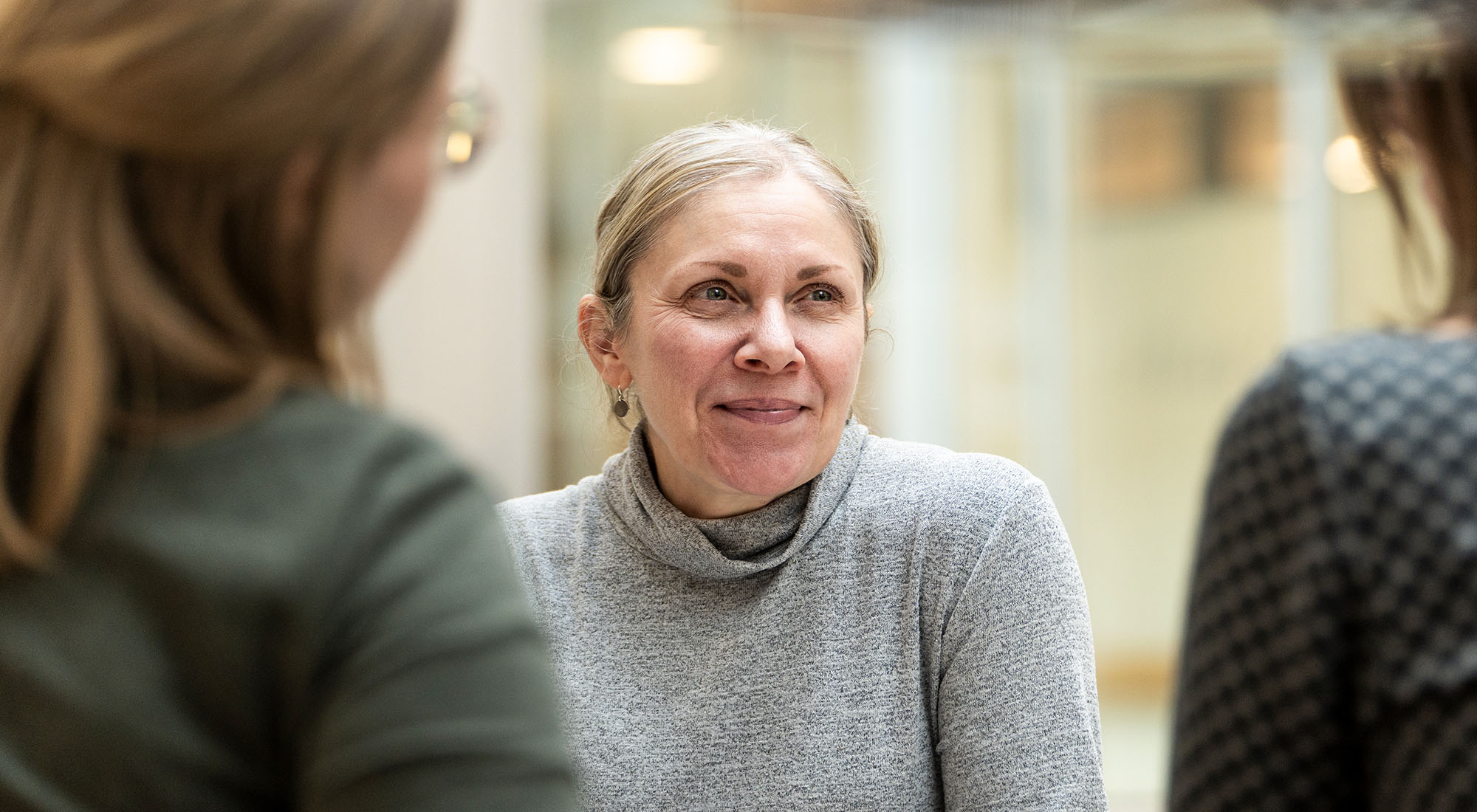The Royal offers groups and sessions designed to support recovery, education, and connection. These include peer-led programs, information sessions, and specialized groups. Each one is built on lived experience and provides a space to learn, share, and connect with others who understand.

The Royal currently has a host of groups and sessions available throughout the year. For any additional questions about services, programs and resources at The Royal and in the wider community visit the Sheila Cudney Client and Family Resource Hub in room 1113 or email resourcehub@theroyal.ca.
No. Peer support specialists are not clinicians. They work alongside health professionals to add lived experience and strengthen care at The Royal.
Sessions focus on your needs, not a preset agenda. Peer support specialists listen, validate, and walk with you through recovery as you define it.
Yes. Peer support for clients and families is confidential, and each relationship is kept separate. Notes from individual peer support sessions are created together with the participant, are not clinical, and are never shared with care teams, physicians, or staff.
General, non-identifying information is collected only to track how the service is used. At times, family peer supporters may ask for feedback to improve services, but confidentiality is always maintained.
Family peer support connects families with trained individuals who have lived experience caring for someone with mental illness or addiction. It helps families navigate challenges, build coping strategies, and protect their own well-being. Family peer supporters are available for one-on-one meetings in person, via Zoom, or by phone. For more information or an appointment email: peersupporthub@theroyal.ca.
Family members face stress, grief, and exhaustion while supporting a loved one with mental illness. Family peer support helps build coping skills, confidence, and resilience, while protecting their own well-being.
No. Family peer support is fully confidential. Your loved one and their care team will not be notified of your participation. Peer support specialists do not share details of sessions with each other, other staff, or allied professionals. Likewise, families are not informed of any peer support interactions their loved ones may have.
No. Peer support is voluntary. It cannot be prescribed or mandated, because its foundation places value on equal, respectful relationships.
Access depends on your program. Reach out to your care team and they will connect you with the appropriate community partner to provide support.
Stay informed about what’s happening at The Royal with our newsletter. Typical features include updates on exciting research, patient success stories, community impact, fundraising campaigns and new treatment programs.
1145 Carling Ave.,
Ottawa, ON K1Z 7K4
(613) 722-6521
1141 Carling Ave.,
Ottawa, ON K1Z 7K4
(613) 722-6521
1804 Highway 2 E, P.O. Box 1050,
Brockville, ON K6V 5W7
(613) 345-1461
2121 Carling Ave.,
Ottawa, ON K2A 1H2
(613) 722-6521
We use cookies to improve your experience on our website. To learn more, read our privacy policy.